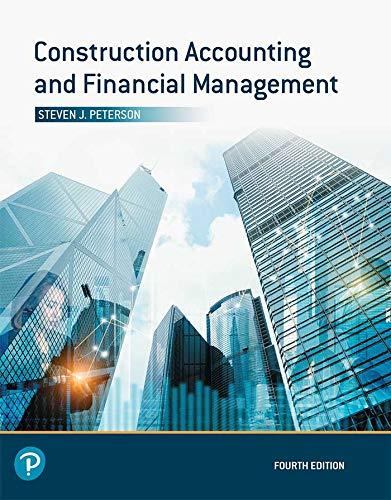Question
1.Procedural Justice Theory suggests that higher motivation occurs when procedures used to make decisions are perceived as fair. What determines fairness? .Interpersonal treatment .Extent to
1.Procedural Justice Theory suggests that higher motivation occurs when procedures used to make decisions are perceived as fair. What determines fairness? .Interpersonal treatment .Extent to which managers explain decisions How .performance levels are evaluated .All of the above 2.The process by which newcomers learn their roles, rules and norms of the group is called: .Socialization .Role orientation . Institutional orientation .All of the above 3.Setting goals for employees affect motivation in a positive way by: .Directing higher levels of effort .Encouraging a higher level of effort .Encouraging development of action plans . All of the above 4.Which "stressor" is present when the behaviors or tasks a person is expected to perform are at odds with each other, as is the case when a manager is expected to increase production levels and her subordinates complain they are overloaded: .Role conflict .Role ambiguity .Role under-load . None of these 5.If two people are performing the same type of work yet one employee's effort, performance and outcomes is higher, suggesting an "over payment" situation by the lower performer, which theory applies? .Need theory .Expectancy theory .Equity theory .Procedural Justice Theory 6.It is commonly accepted that goal setting and goal alignment are powerful management processes in well run organizations. Which factor contributes to goal alignment? .Understanding the big picture .Having visibility to your managers goals . Understanding what your peers are working on . All of the above 7.Groups control members' behavior by rules and norms. This is important because these rules can: .Help ensure members engage in behaviors that contribute to goals . Facilitate the control of member behaviors .Facilitate the evaluation of performance .All of the above 8.There are two major ways to distribute merit pay (salary increases and bonuses). Which type tends to have a greater impact on motivation? .Salary increase - due to an increase in base pay .Bonuses - due to the potential for a big upside . Neither tends to affect motivation long term 9.Social loafing can occur when individual performance is not readily observable. This is the tendency to exert less effort when they work in a group than when they work . What is an action you can take to reduce social loafing? .Keep the group as large as possible .Keep the group as small as possible .Make individual contributions visible .Both b & c 10.We defined stress as the experiences of opportunities or threats that people perceive as important and also perceive they might not be able to handle or deal with effectively. Which of these would be considered an opportunity? .Layoffs .Learning a new skill .Getting a new job .Both b & c
Step by Step Solution
There are 3 Steps involved in it
Step: 1

Get Instant Access to Expert-Tailored Solutions
See step-by-step solutions with expert insights and AI powered tools for academic success
Step: 2

Step: 3

Ace Your Homework with AI
Get the answers you need in no time with our AI-driven, step-by-step assistance
Get Started


